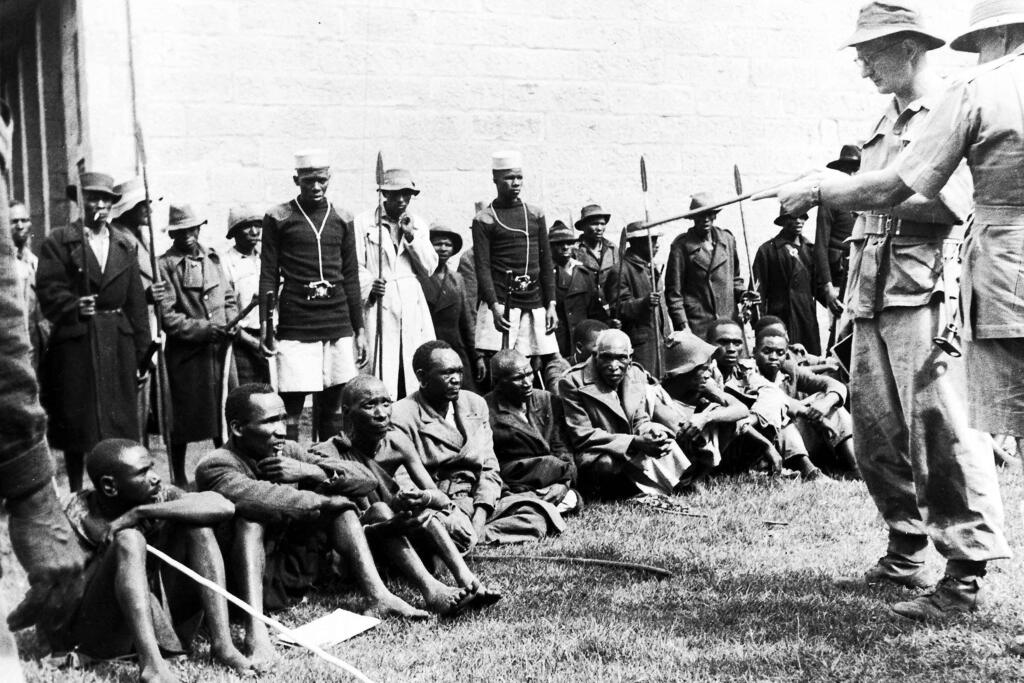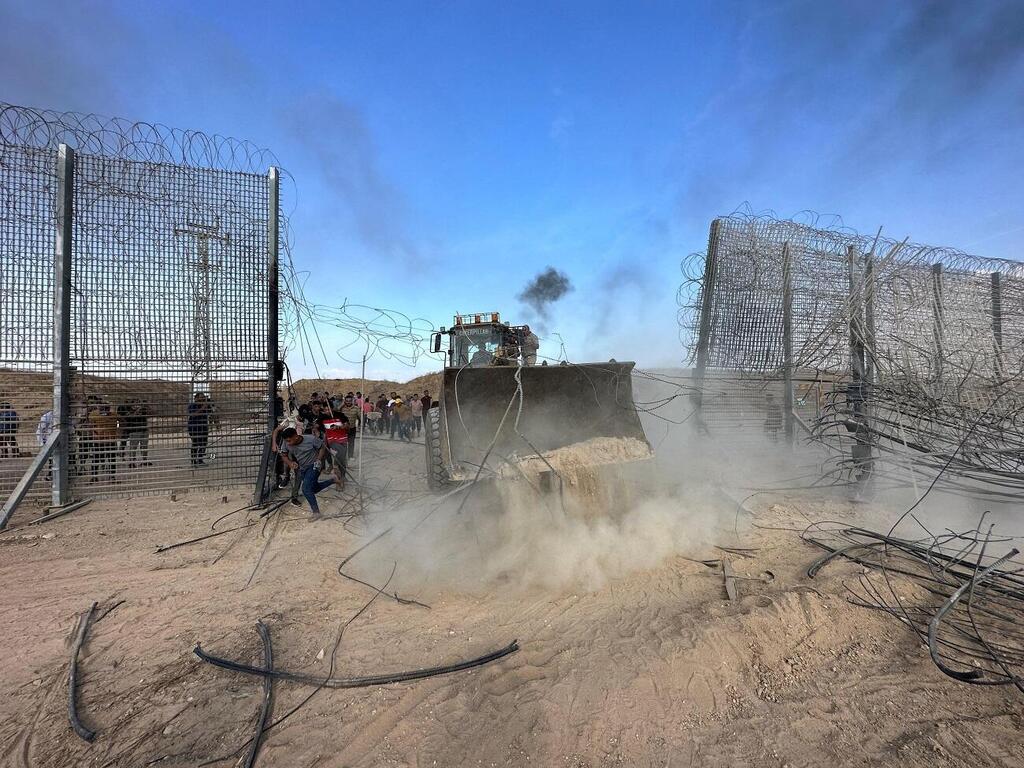Ever since the war begin, the slogan "From the river to the sea, Palestine will be free", has been permeating Israeli ears ad nauseam, as it encapsulates some sort of an ambition to “liberate” Israeli lands in favor of the so-called indigenous Palestinians. The continuation of that same slogan, and the academic narrative that it serves, strive to end “Israeli colonialism”.
Read more:
Colonialism refers to a different time in human history, where empires, mostly of the European variety, held sway over other, supposedly less "cultured" peoples, capitalizing their natural resources, and adding insult to injury by claiming that to further their national interests, they would have to be subservient to them. This is the perception anti-Israeli advocates are trying to project onto the holy land, as if Israel is the geopolitical “Goliath“ to the Palestinian “David”.
The connection between Israel and colonialism is a topic of debate. According to Prof. Ruth Ginio, Associate Professor at the Department of General History from Ben-Gurion University of the Negev, the term "colonialist" is often used by those who argue against Israel, but it carries a negative connotation of controlling and exploiting other nations.
Does Colonialism have a standard definition?
"In my teachings and book on colonialism, I typically refer to historian Jürgen Osterhammel's definition. He describes it as a situation where a foreign minority controls a local majority, making decisions that primarily serve the interests of the invaders and their mother country, rather than benefiting the local residents. This can be seen in decisions like prioritizing the extraction and transportation of resources over improving local infrastructure. Additionally, a key aspect of colonialism is the belief in cultural superiority and the perceived right of the invaders to rule.
"In European colonialism, the cultural aspect played a significant role. The colonizers aimed to 'civilize' the indigenous populations, whom they considered primitive. However, there was an inherent contradiction as the colonizers believed that complete assimilation would be impossible or would require an unattainable amount of time. In reality, the colonial rulers were not genuinely interested in the ruled adopting their ways, as that would undermine their authority."
That definition doesn't really describe the situation in Israel.
"It is important to consider that many protesters and claimants may not possess a comprehensive understanding of the issues they are addressing. Some may not even have a clear understanding of geographical features like rivers and seas, while others make claims that do not align with the complex reality.
"When discussing colonialism in relation to Israel, it is crucial to examine the specific claim being made. Is it about the entire Zionist project being colonial, or does it pertain to the West Bank and Gaza Strip specifically? There is a significant distinction between these two perspectives. While a sense of cultural superiority may exist, there is no aspiration, not even theoretically, to Judaize Palestinians or impose Israeli or Jewish culture upon them. Hence, there is no resemblance to classical colonialism in this case."
"Jewish people did not arrive in the region on behalf of any foreign state"
According to Prof. Ginio, "there is no real basis for the claim that the entire Zionist project and the establishment of the State of Israel in 1948 can be equated with European colonialism. The Jewish people did not arrive in the region on behalf of any foreign state, meaning there is no mother country behind the endeavor, and the goal was not economic exploitation of the land for the benefit of a country beyond the sea," she emphasizes. "In addition, there was a small Jewish population, albeit limited, that had long inhabited the area before major waves of immigration, and there is no doubt about the historical and cultural connection between the Jewish people and the land.
"One of the significant issues with the claim that all of Israel is a colonial project is that in most cases, colonial regimes ended when Europeans left and returned to their own countries. The implication of this claim is that the only way to truly resolve the conflict with the Palestinians is for us to 'go back home' and leave this place, but in our case, it is obviously absurd. Those who make such claims do not recognize our right to exist, and there is no basis for engaging in a discussion with them."
The situation becomes more intricate when examining the current conflict areas - the territories of the West Bank and the Gaza Strip. According to Ginio, "If we talk about these areas, the issue is more complex. There are many differences between what is happening here and the definition of colonialism, and it's not exactly the same thing. However, there are elements that cannot be ignored." She further explains.
"For instance, one topic that emerges in historical research on colonialism is the existence of dual legal systems in settlements. In French settlements, there was a French legal system that applied to French citizens and other Europeans, while a separate system was enforced for the colonial subjects, depriving them of the basic rights enjoyed by French citizens. There is a parallel here to the fact that Israeli law does not extend to these territories, but only to the settlers. Another example is the construction of roads or infrastructure exclusively for the Jewish population without consideration for the Palestinians. In these contexts, there is a striking resemblance to colonial reality."
So what is the proper response to that?
"This is not a situation of colonialism according to its historical definition, but rather a situation of two conflicting nations sharing the same territory," states Ginio. She adds, "On the other hand, we're not going to wave the problem away by simply stating it's 'not colonialism'. It is crucial to acknowledge that there is a problem and that this is not a normal situation. Whether it fits the classic definition of colonialism or not is not the main concern."
Doesn't the fact the Palestinian Authority has civic duties mean Colonialism doesn't apply?
"The Palestinian Authority does not have full control over the entire territory of the West Bank. There are significant areas under our control where a substantial Jewish population resides," explains Ginio. She emphasizes that the response to this claim cannot simply be that there is a Palestinian Authority. While she does not claim to have the definitive solution, she stresses the importance of recognizing the problematic situation at hand. "It doesn't matter what label we give it or how it compares or contrasts with European colonialism. What matters is acknowledging that there is a complex situation here that needs to be addressed."
Atoning past sins
To the south, in the Gaza Strip, the narrative of colonialism espoused by the global left loses some of its strength. Israel does not exercise direct control over the territory, as it withdrew from the region 18 years ago, effectively establishing a clear border between the Gaza Strip and Israel. "Israel's assertion that it left and no longer controls the area holds true to some extent. It is deeply troubling that Hamas and certain circles in the West view the events of October 7 as part of a liberation struggle. It is equally distressing that there are those who deem this mass violence as a legitimate course of action," explains Ginio. However, the situation in which a large population is confined and heavily reliant on Israel and Egypt is unsustainable in the long run, necessitating the search for a solution.
Since October 7, allegations of Israel's colonialism have resonated widely across the globe. It has not only sparked pro-Palestinian demonstrations but has also found traction in academic circles and, at times, in the media too.
(Bill Maher's segment about Israel's right to be here)
In his HBO show, "Real Time with Bill Maher", the host said any talk of colonialism in the Israeli context is unfounded, since Jews had been here for thousands of years. "They are the Native Americans of this land," he said. His guest agreed, saying Israel is a colonialist is simply a "license" to murder Jews.
"We are not necessarily referring to governments in this context. It is not the governments of former colonial countries that obsessively engage with us, but rather a particular segment of the public in those countries," clarifies Ginio. She suggests that there might be a connection between the concerns of this public, especially academic elites, and the accusations leveled against Israel. She points out that in certain countries, such as France, there is still a lingering unsettled history with their past colonial rule in other nations. Additionally, she mentions countries like Portugal, whose voice is scarcely heard in discussions concerning Israel, potentially due to their limited reckoning with their own colonial history. "It is evident that colonialism, in its various manifestations, has not disappeared from the world. It is absurd to claim that we are the 'last colonialists'," Ginio concludes.
Then why do these perceptions make such headway in Europe?
"The West often fails to grasp the complexity of the situation we are dealing with, and these are challenges that it doesn't even recognize or know how to unravel. It is highly likely that if something like what happened on October 7 had occurred to them, they would have responded more or less as we did. On the other hand, all this focus on the West and the discussions about the accusations raised against us somewhat distract us from the need to also reflect on ourselves, not because we are the last colonialists, but because we need to think about what future we want for our children here and how we can continue living in this place.
"All these debates about the protesters and the West do not exempt us from our responsibility toward ourselves and the next generation that will grow up here. Ultimately, no matter what we call it, there is a problem and a situation that cannot persist indefinitely. Instead of getting angry about the accusations against us, we should try to find a way to get out of the predicament we are stuck in."






